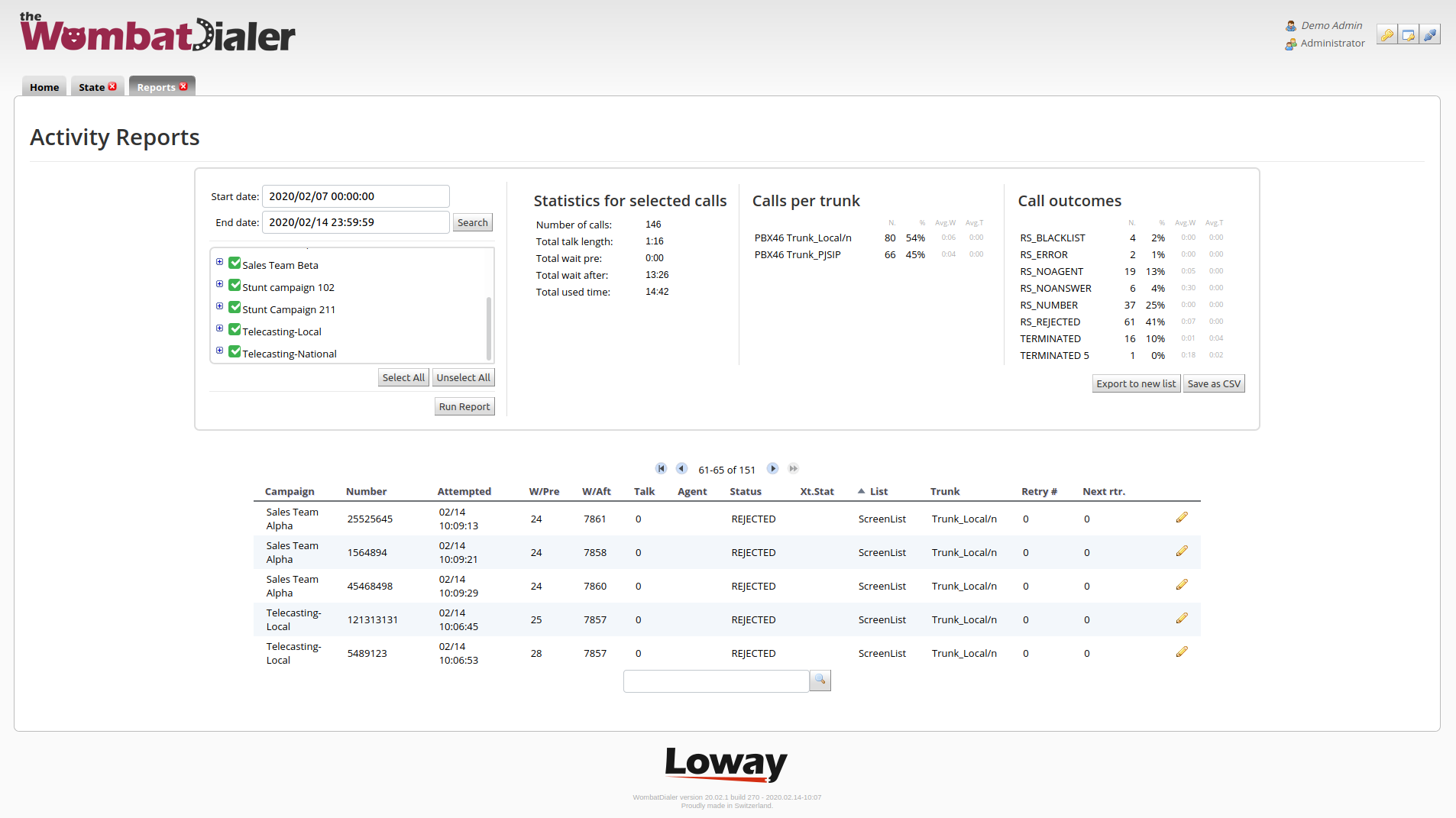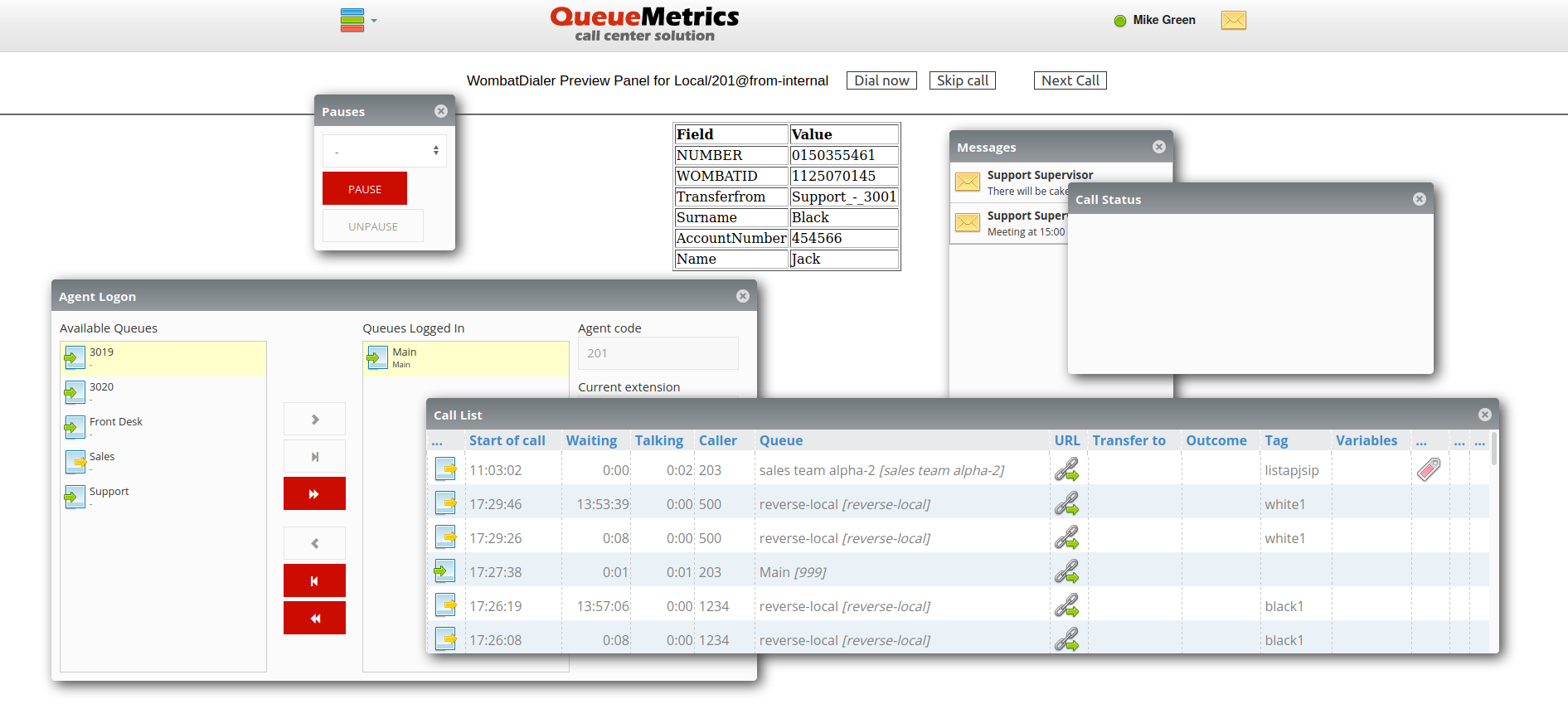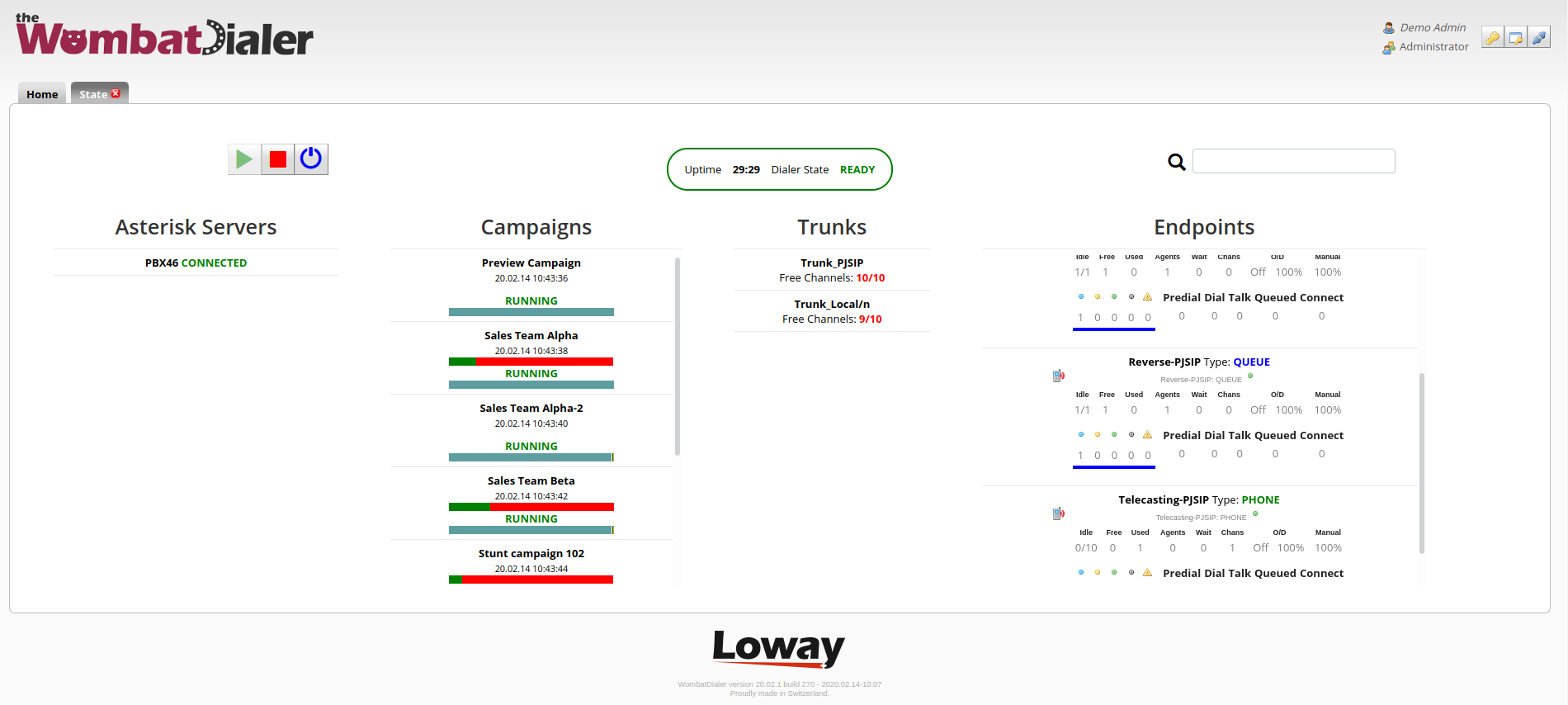WombatDialer 20.02
Loway is proud to announce the release of WombatDialer 20.02; it was designed to make the life of administrators easier, with many small fixes that improve the overall experience of running the dialer for both small and very large systems.
What are the main improvements for this release?
-
Improved handling of black lists
-
Tracking of attended and unattended transfers from queues
-
Improved GUI
-
Improvements to the API, with full visibility of JMX internals
On top of this, about 40 bugs and minor issues were fixed.
Improved black-lists
You asked and we listened: this is an apparently simple change that has deep implications. WombatDialer has powerful black-list where numbers can be added at any time and for any specified duration of time - one minute to a month or more. As you can imagine, black-lists are central to compliance with local regulation in many parts of the world.
So far, black-lists were checked only when starting a new call, so if the call was allowed and it needed multiple attempts to go through, all of them would be made even if the number had been black-listed in the mean time.
With WombatDialer 20.02, black-lists are checked on each and every attempt, so as soon as a number is black-listed, all subsequent attempts to dial it will be caught. This means you can use black-lists in a way that is more natural, and create new scenarios: for example, to cancel further scheduled outbound calls when a caller happens to call in first.
Tracking of attended and unattended transfers
It is quite a common scenario for outbound contact centres to have agents contact and qualify a prospect, and then transfer them to the appropriate department. When this happens, the original agent will be free again to take another call.
Historically, call transfer support on queues with Asterisk was not that good, and only unattended transfers were supported. Luckily, this has improved significantly since Asterisk 13, and WombatDialer now supports it fully for both attended and unattended transfers, making the agent ready to take a new call as soon as a previous one is transferred.
You can use both attended and unattended transfers, and it works in direct and reverse dialing mode, with or without predictive over-dialling.
Improved GUI
Selecting multiple runs for inspection on the Reports page is easier, with a select all/unselect all checkbox for each campaign.

Users can now change their own password right from the GUI, through a new integrated password change panel:

The Copy Campaign feature requires a new, separate security key called COPY. On upgrade of an existing system,
you will see that the option is disabled until the new key is granted.
The Reverse Step-wise dialer panel had a face-lift to make integration with QueueMetrics more natural and working with it more pleasant.

The Dialer State page now features a different icon for stop-and-restart, as it looked too similar to the one used to refresh current state on the home page.

Improvements to the API
The elephant in the room here is JMX counters: these are the standard mechanism a Java program uses to publish performance counters. They expose a wealth of information on what WombatDialer is doing internally - memory and CPU usage, number of operations, delays on queues, fine performance of many separate operations, number and delay of messages exchanged with the PBX, for a total of over 140 counters.
Now, WombatDialer exposes all of them as a simple JSON service, without the hassle and the complexity of setting up a JMX client. So it is very easy to push them to a graphing or monitoring back-end in order to observe and monitor performance over time.
The API now returns the correct campaign-list association as soon as it is created, saving you a second round-trip to fetch this information on campaign creation.
See: The WombatDialer User manual, section: 8.3.7. JMX statistics
Misc items
-
Full compatibility with Asterisk 15 and 16 (current LTS)
-
Extensive testing of PJSIP channel support
-
Fixed issue with local logging where data would not persisted to the database on some restarts
-
Addressed an auth bypass bug on campaign creation
-
Addressed security bypass on end-points through the GUI
-
Compact and easier-to-read representation of AMI blocks in debug logs
-
Pause events would not be tracked correctly on Asterisk 13+
-
Improved set-up wizard
-
Upgraded GWT version and collapsed obsolete browser versions into single build.
-
Clean-up of various deprecated methods
-
Manual preview mode enforces Reverse Dialling in the editor